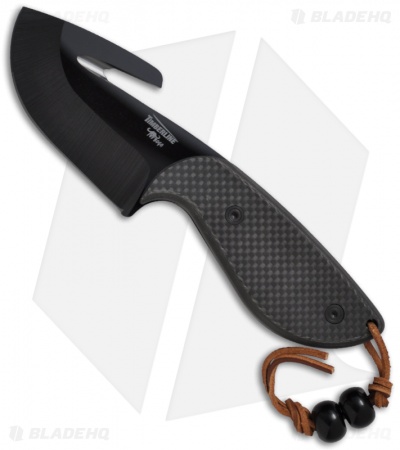This is a question that I seem to be coming across more and more. Nobody really goes into detail on which really is better. Today, we are going to compare the two. The main focus is going to be ceramic knives; everybody knows about steel knives.
Okay, a few things you need to know about ceramic knives: they are fragile. You will likely hear stories about people dropping and shattering ceramic knives as if they were a Ming vase. Like most legends, this isn’t true. Yes, they are fragile, but they don’t shatter. The blades usually break or chip. I have never had any of my ceramic knives shatter when dropped or banged against anything—this is something that I have personally tested. Usually with a larger ceramic blade it is more likely to chip than with a smaller ceramic blade.
A ceramic knife is extremely sharp and remains sharper longer than your average steel knife. Ceramic knives are much harder to sharpen because the only recommended way is to sharpen them with a diamond dust coated spinning wheel or diamond coated stones. Steel blades dull quicker than ceramic blades, but they are much easier to sharpen. The average ceramic edge will remain sharp for about 3-5 years, compare to a steel blade.
When cooking, chopping or parring, I prefer ceramic to steel blades. Parring is obviously easier to do if the knife is much sharper; the sharper, the better. Ceramic knives are designed to chop vegetables, fruit, filet fish and chop boneless meat. Obviously you will want to be very careful when you are doing this because you don’t want to hit that blade against anything harder than ceramic. If you blade does encounter something hard, you will most likely find your edge chipped.
Another perk to working with a ceramic knife is the fact that they do not rust. Steel blades can rust if not properly taken care of. If you live near a large body of water or somewhere that is very humid, steel is bound to rust. Ceramic doesn’t rust and is extremely easy to clean. If you are a fisherman, a knife that is easy to clean, stays sharp and isn’t susceptible to water is preferred.
You might notice a that there is somewhat of a pattern. It’s not simple to see, but I will be kind enough to point it out. Ceramic knives are designed for a special kind of job! Steel knives are designed to do just about everything else. In reality, comparing the two is like saying truck vs car! A truck is designed to pull things, haul loads and go off-road. Whereas cars are simply for transportation. That being said: let’s take a look at some of the type of jobs a ceramic blade would be good for.
First up, being a professional chef, ceramic edges are perfect for just flying through fruits and vegetables. Being as light as they are, they are really easy to get some speed when chopping things up. Cleaning as you go has never been as easy. All your really have to do is rinse it off. And tada! It’s clean and sanitized. No scrubbing and dish soap isn’t necessary. Ceramic blades are not porous; therefore odors, bacteria and germs, slime, etc cannot adhere to its surface. Chefs don’t always have time to stop and sharpen up a knife.
Another great job a ceramic knife would have is working with a scuba diver. It is important for them to have a knife that isn’t going to rust and fall apart on them. With ceramic, you don’t have to worry about any sort of rust or corrosion. Yes, they make steals that are rust-resistant. The key word is rust-resistant; not rust-proof. Steel knives that are labeled rust-resistance still can rust.
If you are a scuba diver, a ceramic knife is the right knife for you. You can take the knife with you while scuba diving without having to worry about rust or erosion. One downfall to having a ceramic knife when you’re scuba diving is if you need to cut something hard, your ceramic knife will more likely hinder than help. Ceramic knives are more fragile and you will have a higher chance of chipping your edge on something.
Overall ceramic blades stay sharp; are sanitary; and are great for food preparation, fishing and any activities that require soft things to be cut.
Post a comment and let me know what you have experienced with ceramic knives.

